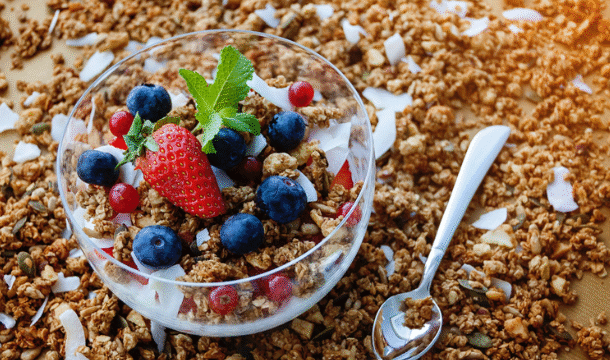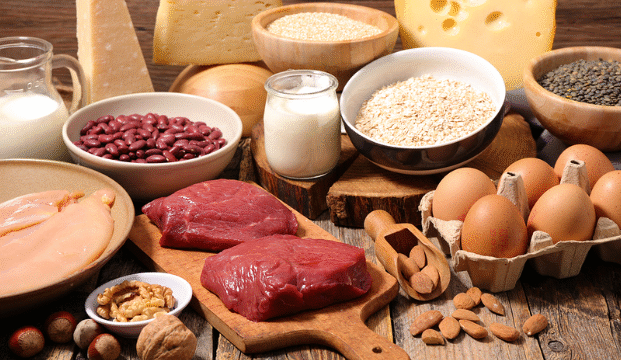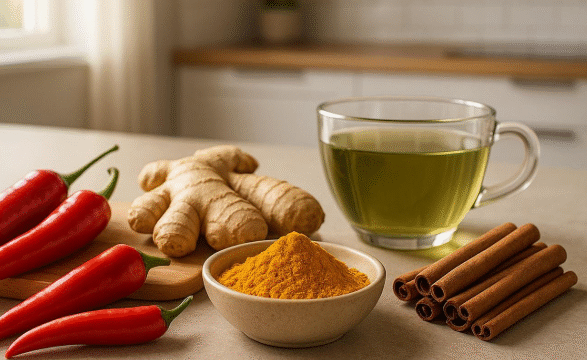1.
Lean Proteins
Examples: Chicken, turkey, eggs, fish, tofu, beans
- Protein-rich foods take more energy for your body to digest compared to fats or carbs.
- Including lean protein in meals can help you feel fuller for longer and support muscle maintenance.
2.
Whole Grains
Examples: Brown rice, quinoa, oats, whole wheat bread
- Whole grains contain fiber, which slows digestion and helps regulate energy release.
- Unlike refined grains, they provide more vitamins, minerals, and sustained fuel.
3.
Green Tea
- Green tea contains natural compounds (like catechins) that are studied for their potential role in supporting metabolism.
- It’s also a low-calorie beverage alternative to sugary drinks.
4. Chili Peppers
- Spicy foods, especially those containing capsaicin (the compound that gives peppers their heat), may temporarily support energy use.
- Adding a small amount of spice can also enhance flavor without extra calories.
5. Coffee (in Moderation)
- Caffeine is a natural stimulant that may help increase alertness and short-term energy use.
- Opt for black coffee or lightly sweetened versions to keep it healthy.
6. High-Fiber Vegetables
Examples: Broccoli, spinach, kale, carrots
- Fiber helps keep digestion steady, supports gut health, and adds volume to meals.
- Vegetables are nutrient-dense, making them a smart choice for overall wellness.
7. Healthy Fats
Examples: Avocados, nuts, seeds, olive oil, salmon
- While calorie-dense, these fats support satiety and provide essential nutrients that play a role in energy balance.
Final Thoughts
No food alone will “speed up” metabolism overnight, but including a mix of lean proteins, whole grains, vegetables, and healthy fats can help support long-term wellness. Pairing these foods with regular exercise, quality sleep, and hydration is the most effective way to keep your metabolism running smoothly.






